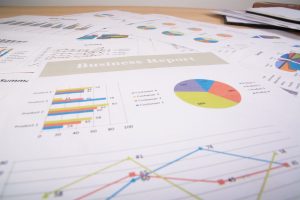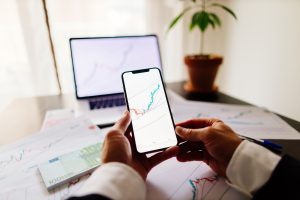In an increasingly digital age, personal budgeting has been revolutionized by technology, making it easier than ever for individuals to manage their finances effectively. The proliferation of smartphone applications, online platforms, and advanced financial tools allows users to simplify complex budgeting processes while gaining better insights into their spending patterns.
Market Impact
The global personal finance software market is projected to reach $1.57 billion by 2025, growing at a CAGR of 8.5% from 2020, according to recent reports by Market Research Future. As more consumers seek control over their financial well-being, the demand for user-friendly budgeting applications is on the rise. Many of these apps employ algorithms that analyze user data, offering personalized recommendations that can lead to more informed spending habits. Notably, some popular platforms, such as Mint, YNAB (You Need A Budget), and Personal Capital, have seen their user bases swell, highlighting a growing trend toward tech-driven financial management.
Furthermore, the COVID-19 pandemic has amplified this interest as individuals faced unprecedented financial pressures. Several consumers shifted towards digital banking services, with traditional banks and fintech companies adapting by enhancing their app functionalities to retain and attract clientele.
Expert Opinion
Financial experts emphasize the significance of leveraging technology in personal budgeting. “Users have unprecedented access to tools that can not only track their spending but also suggest changes to enhance savings,” says Dr. Anna Roberts, a financial analyst at FinTech Innovators. “By imputing spending habits, consumers receive recommendations that can lead to significant savings over time.”
Moreover, the incorporation of AI and machine learning has enabled budgeting applications to provide predictive insights. These tools not only track expenses but can forecast potential financial outcomes based on historical data. “This technology allows users to make proactive decisions rather than reactive ones,” notes Roberts.
Background
Historically, personal budgeting was a manual process involving spreadsheets and paper ledgers. While effective, this approach often led to oversight and frustration. However, as technology advanced, personal finance software emerged in the late 1990s, laying the groundwork for today’s highly sophisticated tools. The evolution from basic tracking to comprehensive financial analysis reflects a broader shift in consumer expectations, with users seeking convenience, insight, and control over their financial futures.
The introduction of mobile applications has particularly changed budgeting dynamics, as they provide instant access to financial data. With just a few taps, individuals can categorize their spending, set limits, and monitor their progress in real time. Innovations such as biometric logins and cloud storage have further enhanced security, allowing users to safeguard their sensitive information while still enjoying the benefits of easy access.
What’s Next
Looking forward, the future of personal budgeting appears bright, with continual advancements in technology promising even more robust features. Fintech companies are increasingly focusing on integrating budgeting tools with other financial services, such as investment platforms and insurance solutions. Such integrations can create a seamless user experience that consolidates financial management into one comprehensive platform.
Moreover, the rise of open banking, which allows third-party applications to access bank information with customer consent, is expected to drive further innovation. This will likely lead to even more personalized budgeting experiences tailored to individual needs.
As more millennials and Gen Z consumers enter the financial market, budgeting tools that offer gamification and social sharing features may become particularly attractive. These features can motivate users to adhere to their budgeting goals by creating friendly competition or social accountability.
In summary, technology’s role in personal budgeting cannot be overstated. With the steady growth of the personal finance software market and the increasing integration of AI and open banking initiatives, individuals are better equipped than ever to take control of their finances. As consumer needs evolve, the industry is poised to adapt, ensuring that effective financial management remains accessible to all.








